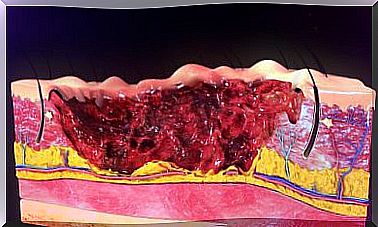Limerencia: What Is It And How Is It Different From Falling In Love?
Love is one of the most intense and mobilizing emotions. Falling in love and the beginning of an emotional relationship usually generate positive feelings of euphoria, pleasure and desire for contact. However, sometimes these natural and pleasant reactions take on an obsessive tinge and begin to generate negative consequences; that’s when we talk about limerence .
This term was coined by the psychologist Dorothy Tenov to describe a psychological state of obsession with another person, characterized by strong desires for reciprocity of the loving feeling. It is a condition that shares similarities with obsessive compulsive disorder and addictions.
How can we differentiate limerence from falling in love?
A large part of people with limerence are not aware of the harmfulness of their thoughts, emotions and behaviors. And it is that, frequently, it is confused with the typical infatuation.
As happens on other occasions, natural and expected reactions become pathological when they are exceeded in frequency or intensity. Thus, despite the fact that falling in love can also lead a person to constantly think about their loved one and wish to be reciprocated in their feelings, limerence has some differential characteristics.
Falling in love has a temporary nature that ends up giving way to more serene feelings, based on intimacy, complicity and commitment. The members of the couple get to know each other and share moments and interests until they forge a deeper bond.
In the case of limerence, the obsession can last for months or years without reducing its intensity, leading to completely obviating the defects of the other and idealizing him in the extreme.
Also, in a normal relationship the well-being of the other is a priority and both partners treat each other with respect and consideration. The person who suffers from limerence prioritizes his desire to be reciprocated affectionately. For this reason, they can persecute, harass and go beyond the limits of the other to check and reassure themselves of their affection.

Signs to recognize limerence
As we have commented, it is not always easy to identify that you are experiencing limerence. Therefore, here are some of the basic characteristics:
- Presence of intrusive and recurring thoughts about the other: a large part of the time is spent fantasizing about an ideal relationship and analyzing each of their gestures and movements to see if reciprocity exists. In addition, these signals are often exaggerated and given a meaning they do not have.
- Excessive focus on the loved one: This leads to social isolation and neglect of other important areas of life, such as studies or employment.
- Production of an intense fear of rejection: it can even manifest itself in physiological symptoms of anxiety, such as tachycardia, tremors, hyperventilation or appetite problems.
- Need for reciprocity: the lack of it generates intense states of anxiety and depression. In addition, given the importance given to the other, the person who suffers from limerence suffers low self-esteem and comes to think that his life has no meaning without the affection of the other.
Consequences of limerence
Limerence can have serious consequences on several levels. In the first place, the obsession with the person object leads to neglect other vital areas, which can lead to poor academic or work performance.
Personal relationships are also affected, since there is a tendency to isolate themselves and react negatively when receiving criticism.
In addition, significant emotional distress occurs. Jealousy, stress, anxiety and depressive symptoms arise. It is an involuntary state in which thoughts and feelings are uncontrollable.
On the other hand, the other person may feel harassed, pressured, and disrespected by constant attempts to ensure reciprocity. Ultimately, it is a harmful and unpleasant situation for both of you.
Can it be treated?
Limerence is difficult to address because, in many cases, the person is not aware of the problem. However, psychological intervention is very effective. It will help to identify the origin of the disorder and the factors that maintain it.
But in addition, it will affect the change of thoughts regarding the desired person, oneself and the meaning of a relationship. Due to the similarities with obsessive compulsive disorder, response prevention exposure also offers good results.

Love shouldn’t lead us to obsession
While love is a positive and pleasant feeling that favors the affective connection with other beings, limerence is a disorder that causes suffering and deteriorates the quality of life.
Therefore, it is important to review the beliefs we hold about love and analyze what emotions and behaviors are aroused. When suffering becomes habitual and begins to affect daily life, you have to seek help to overcome it.









